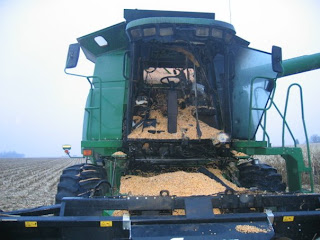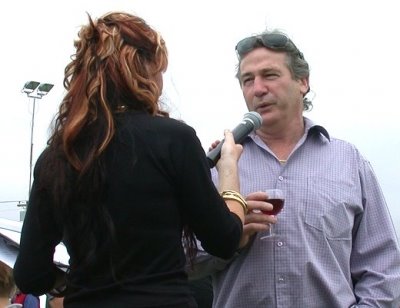
If there is one thing Farmgirl abhors more than any other, it is when a fellow farmer decides to sell the rest down the road to prop up his own business.
Never was this shown as clearly as when Freedom Farms co-founder Gregor Fyfe decided to use the blatant hype surrounding the so called 'sow pig crate cruelty' this last week as fodder to promote himself and his business through letters to the editor that were surprisingly published in a number of newspaper publications.
In them Fyfe said:
"Mike King's expose of intensive pig farming in New Zealand on Sunday (TV One) last night was sickening, but brilliant.
It must've taken a huge amount of courage for Mike to admit that he was wrong to put his name to the NZ Pork Industry Board without first investigating the way the majority of pigs are reared in this country.
Thanks to the efforts of Safe to enlighten him, Mike has now seen the extent of the suffering that many of the pigs living here endure on a daily basis.
And, to his credit, he was so appalled by the conditions (in particular the use of sow stalls), that he felt compelled to tell the rest of the country about it.
Happily for Mike and the rest of us pork lovers, there is an alternative. Many pigs are now being farmed without those crates and fattening pens and there are a growing number of free-range pork products available in specialty stores and supermarkets nationwide.
If you want your pork to come from happy pigs, the answer is simple. Check the label. If it doesn't say free range or free farmed then chances are it's not."
Firstly Farmgirl questions why newspapers would run such a blatant commercial advertisement disguised as a letter in the first place? Fyfe must have been rubbing his hands together gleefully at the free publicity he received.
Again and again in the farming community we see industries diluted by the lack of combined strength among farmers. It happens in the arable industry when farmers succumb to ridiculous wheat contract prices like they are at present and Fyfe has shown when the going gets tough in the pork industry, he bails and promotes himself which in Farmgirl's opinion is the lowest a man can go.
Okay, if he had advised that his product was free range and that consumers had a choice, that would have been alright, but to boot the poor pig farmers in the North Island while they're down by commenting sarcastically on their practices is just unacceptable.
But you know what - this money grabbing betrayer won the week. In supermarkets Farmgirl viewed this very morning in Canterbury, shelves that were normally full of expensive Freedom Farm bacon are near empty.
Farmgirl even bought some bacon from them today as well as many others to test whether their product is worth it's hefty $10.00 for 300grams.
In another irony Farmgirl questioned her local butcher this morning who informed her that they had sold 'astronomical' amounts of pork this week but that people still hadn't asked where it had come from, they just assumed that if it came from the butcher it wouldn't have been in a sow crate.
He thought the issue was crazy and said that most pork farmers have to separate out their sows in stalls for short periods of time to protect them even on so called 'free range farms'.
One thing is certain, there are three identities that benefited from this last week financially, Mike King, S.A.F.E and of course Freedom Farms.
Hope the bacon doesn't taste too bitter in your mouth Gregor...



















































